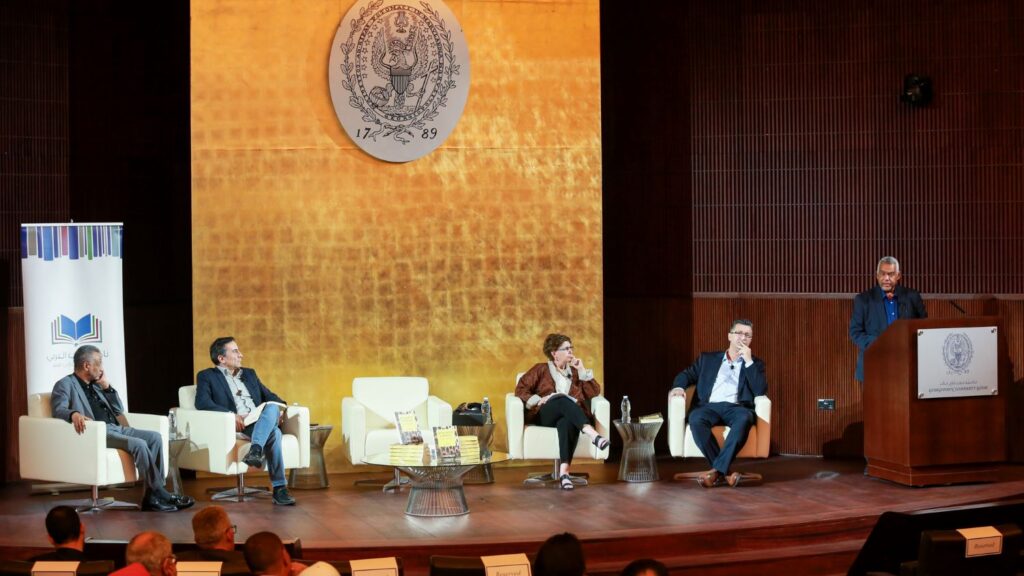Lively Discussion on Intellectual Diseases with Doha Institute’s President Closes Georgetown Arabic Book Club Activities for the Year

Dr. Abdelwahhab El-Affendi, a leading authority in international relations and regional affairs, and the President and Provost of the Doha Institute for Graduate Studies, was the featured guest of the Arabic Book Club at Georgetown University in Qatar (GU-Q), where he led a thought-provoking discussion on the contemporary issues raised in his recent book, عن المثقّف الإسلامي والأمراض العربية: تأمّلات في المِحنة المُعاصِرة [The Islamic Intellectual and Arab Diseases: Reflections on the Contemporary Arab Crisis.]
In his book, Dr. El-Affendi explores the complex societal challenges and afflictions faced by the Arab world, and aims to offer potential solutions. “The book deals with the role of the intellectual in general and discusses Arab intellectuals in their analysis of the so-called Arab maladies,” said Dr. El-Affendi. Among other challenges, he identified intellectual stagnation, political turmoil, and cultural setbacks, as key issues that have impeded progress and development within Arab societies.
Held at GU-Q, the event was organized in collaboration with the Doha Institute for Graduate Studies, and was opened with words from the dean of GU-Q, Dr. Safwan Masri. It featured a panel of experts representing diverse academic disciplines, including the history of religion, Arab media studies, practical philosophy, and modern Islamic thought. Attendees were treated to a lively exchange of ideas, gaining valuable insights from different intellectual perspectives.
Dr. El-Affendi thanked the Arabic Book Club, and underscored its efforts in contributing to the development of a knowledge society, saying, “Book clubs constitute an important platform to the building of knowledge and a main component of the development of intellectual disciplines.”
Dr. Yehia A. Mohamed, founder of the Arabic Book Club and Associate Professor of Arabic at GU-Q, emphasized the importance of engaging with diverse intellectual traditions, saying, “Preserving and promoting Arabic literary culture isn’t only the responsibility of teachers and scholars; it is a responsibility shared by all members of society. And events like this provide an accessible platform for public debate and dialogue, and deepen our shared appreciation of the rich heritage of the Arabic-speaking world.”
The Arab Book Club is an initiative of the Arabic Language and Culture Program at GU-Q. Established in 2016, the club meets regularly with the aim of promoting cultural and intellectual life in Doha. Inspired by the mission of Georgetown University in Washington, DC, to promote intellectual, ethical, and spiritual understanding, GU-Q aims to advance knowledge and provide students and the community with a holistic educational experience that produces global citizens committed to the service of humanity.